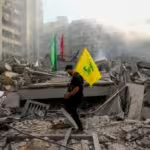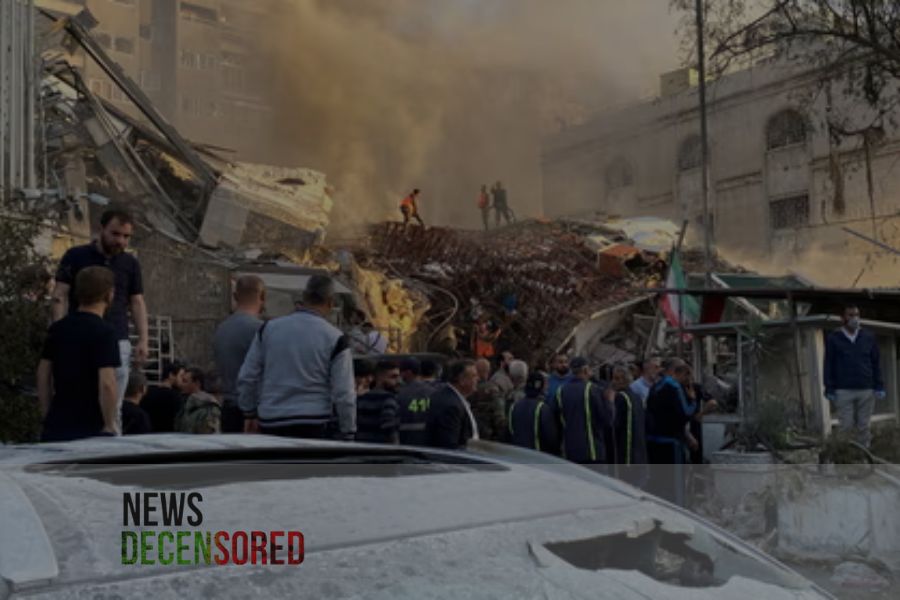Amid intense regional tension since the outbreak of war in the Gaza Strip on October 7, the Israeli strike was carried out on the Iranian consulate in the Syrian capital, Damascus, leaving 11 people dead, including leaders and important advisors in the Iranian Revolutionary Guard, which exacerbated fears of the outbreak of a new kind of war between Israel and Iran.
For years, the conflict between the two enemies remained within the framework of what is known as the “shadow war” through the militias supported by Tehran in the region from Iraq through Syria, Lebanon and Yemen, where the Houthis are.
A painful blow
However, the targeting of the consulate was a painful blow to Tehran. Indeed, the first bombing targeting its consulates or embassies also constituted a moral blow to it, according to some analysts.
In this context, Ali Faez, director of the Iranian department at the International Crisis Group, said that Iran and Israel have been engaged for years in what was called a shadow war, but the consulate strike proved that this term has become wrong, especially with the increasing tensions on multiple fronts in the country. He also explained in a series of tweets on his account on the[A1] region.
“An unenviable position”
He believed that Tehran is in an unenviable position, writing that failure to respond will be interpreted as weakness and thus call for more Israeli strikes, as well as responding directly or indirectly against Israeli and/or American interests may lead to the same result.
In addition, he warned that targeting a diplomatic facility is similar to targeting Iran on its territory. He added in statements to the New York Times that failure to respond would undermine the Iranian military presence in Syria, but “if they also respond, they will fall into the trap that they believe will “Israel set it up for them in order to push them into direct war.”
In turn, Charles Lister, Director of the Syria and Countering Terrorism and Extremism Programs at the Middle East Institute in Washington, confirmed in a tweet on his VX account that the Israeli strike on Damascus yesterday is a major development and a dangerous escalation.
For his part, Peyman Sayyed Taheri, a conservative analyst close to the Iranian government, believed that the Damascus strike shook the Iranians, who feared the failure of the government’s approach in the confrontation with Israel. He said, “Our national security has been violated. Either Iran responds so that Israel does not attack us in our own backyard.”
He also added, “If it does not want to respond, it must reconsider and reduce its regional policies and military presence in the region,” according to the New York Times.
It is noteworthy that the conflict behind the scenes, or what is known as the Iranian-Israeli shadow war, has been going on for years, with each party targeting the other in different ways and occasions. Israel carried out several assassinations, whether in Syria or even inside Iran, in addition to acts of interference and piracy as well.
Tehran did the same, as it carried out several electronic attacks inside Israel, and also urged its “arms” in the region, as many experts and analysts describe them, in order to strike Israeli interests and American bases as well.















